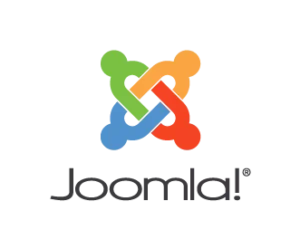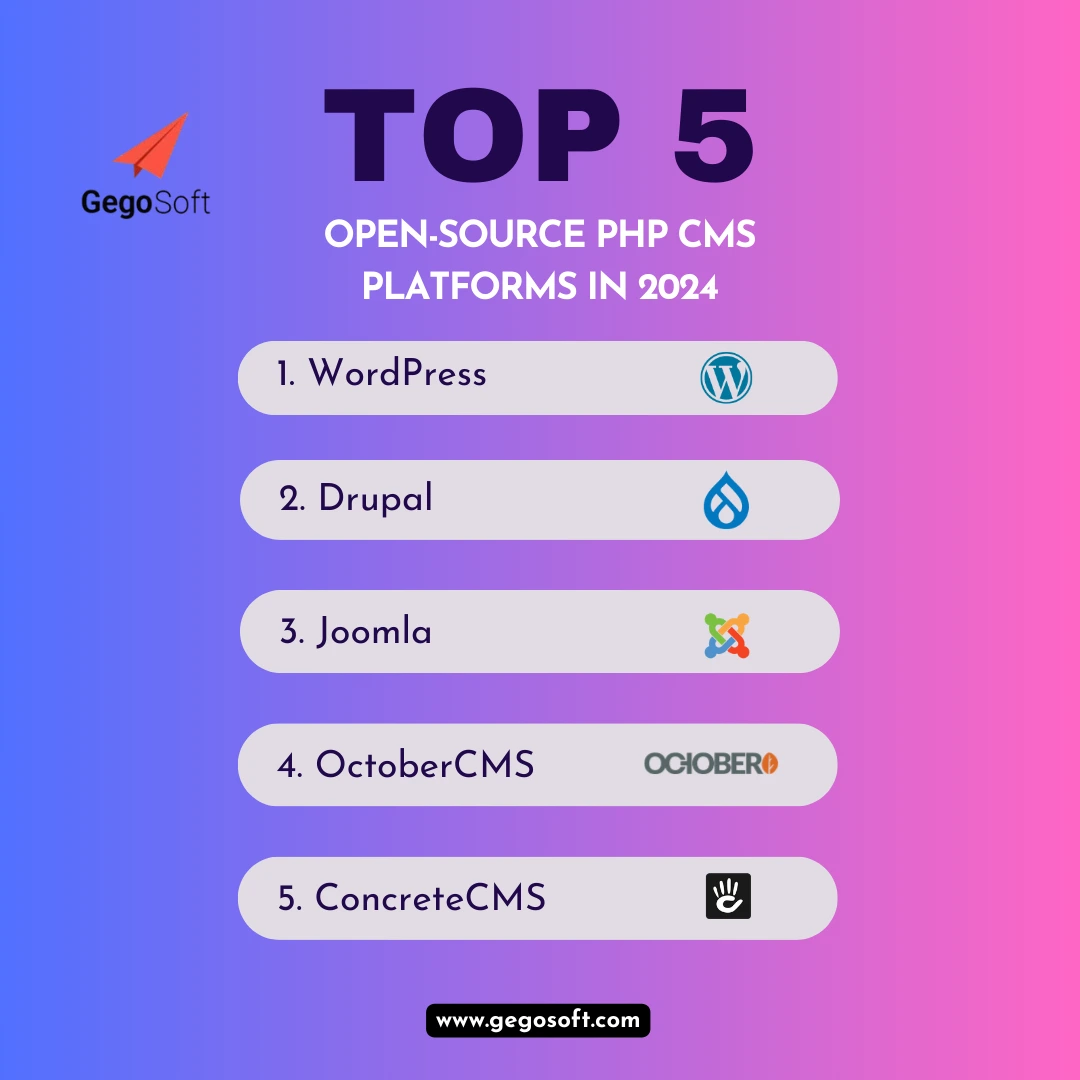PHP-based Content Management Systems (CMS) have been the cornerstone of web development, enabling millions of users to create, manage, and scale their digital presence. As 2024 unfolds, open source PHP CMS platforms continue to dominate the web development landscape, thanks to their flexibility and community-driven innovation. In this blog, we explore the top 5 Open Source PHP CMS platforms and the challenges they face as they head toward 2025.
1. WordPress

Why It Shines
With over 60% of the CMS market share and a staggering 60k+ GitHub stars, WordPress remains the king of Open Source PHP CMS platforms. Its extensive plugin and theme ecosystem, combined with ease of use, make it the go-to choice for websites of all sizes.
Challenges Ahead
- Performance Optimization: The core system and popular plugins often introduce performance bottlenecks, especially on large-scale sites.
- Security Vulnerabilities: As the most popular CMS, WordPress is a frequent target for attackers, requiring constant vigilance in maintaining security.
- Gutenberg Adoption: Convincing developers and users to fully embrace the block editor is an ongoing challenge.
2. Drupal

Why It Shines
With 11k+ GitHub stars, Drupal is renowned for its flexibility, scalability, and robust security features. It’s a favorite for enterprise websites and complex content architectures.
Challenges Ahead
- Steep Learning Curve: Drupal’s complexity can intimidate newcomers, hindering adoption among smaller businesses and solo developers.
- Third-Party Integration: Staying competitive in a world that demands seamless integration with modern tools and APIs is a must.
3. Joomla

Why It Shines
Joomla, with over 9k GitHub stars, strikes a balance between ease of use and customization. Its multilingual support, built-in caching, and advanced user management make it a versatile CMS.
Challenges Ahead
- Community Growth: Compared to WordPress, Joomla’s community and ecosystem are smaller, making it harder to compete in terms of plugins and extensions.
- Modernization: Keeping the core CMS up-to-date with modern coding standards and practices will be crucial.
4. OctoberCMS
![]()
Why It Shines
OctoberCMS, with 11k+ GitHub stars, stands out for its developer-friendly approach, leveraging the Laravel framework. It offers flexibility and simplicity, making it an excellent choice for developers who want complete control over their projects.
Challenges Ahead
- Adoption Among Non-Developers: OctoberCMS’s developer-first approach limits its appeal to non-technical users.
- Ecosystem Expansion: Building a larger library of plugins and themes to compete with more established CMS platforms is critical.
5. ConcreteCMS

Why It Shines
With 4k+ GitHub stars, ConcreteCMS focuses on user experience with an intuitive in-context editing system. It’s ideal for small to medium-sized businesses seeking a simple yet powerful CMS.
Challenges Ahead
- Performance on Large Sites: ConcreteCMS needs to improve its scalability and performance for larger projects.
- Broader Market Reach: Competing with giants like WordPress requires aggressive community engagement and marketing.
Challenges Ahead Toward 2025
- Headless CMS Adoption: As more developers prefer decoupled architectures, PHP CMS platforms must offer robust APIs and integrations to remain relevant.
- Security and Privacy: With increasing data privacy regulations, ensuring compliance and enhancing security features will be a top priority.
- AI and Automation: Integrating AI tools for content generation, SEO, and personalization will be critical to meet modern user expectations.
- Performance at Scale: CMS platforms need to improve speed and scalability for high-traffic websites.
- Competing with SaaS Solutions: Open-source CMS platforms must continue to offer compelling advantages over proprietary SaaS platforms like Wix and Squarespace.
Final Thoughts About Open Source PHP CMS platforms
The top Open Source PHP CMS platforms in 2024—WordPress, Drupal, Joomla, OctoberCMS, and ConcreteCMS—are versatile, powerful, and backed by thriving communities. However, challenges like embracing headless architectures, maintaining performance, and integrating modern features like AI-driven tools will determine their success in 2025 and beyond. Whether you’re a beginner or a seasoned developer, these CMS platforms provide a strong foundation to build exceptional digital experiences. The journey forward promises innovation, growth, and a continued commitment to open-source excellence.
Read More About Top PHP frameworks in 2024

